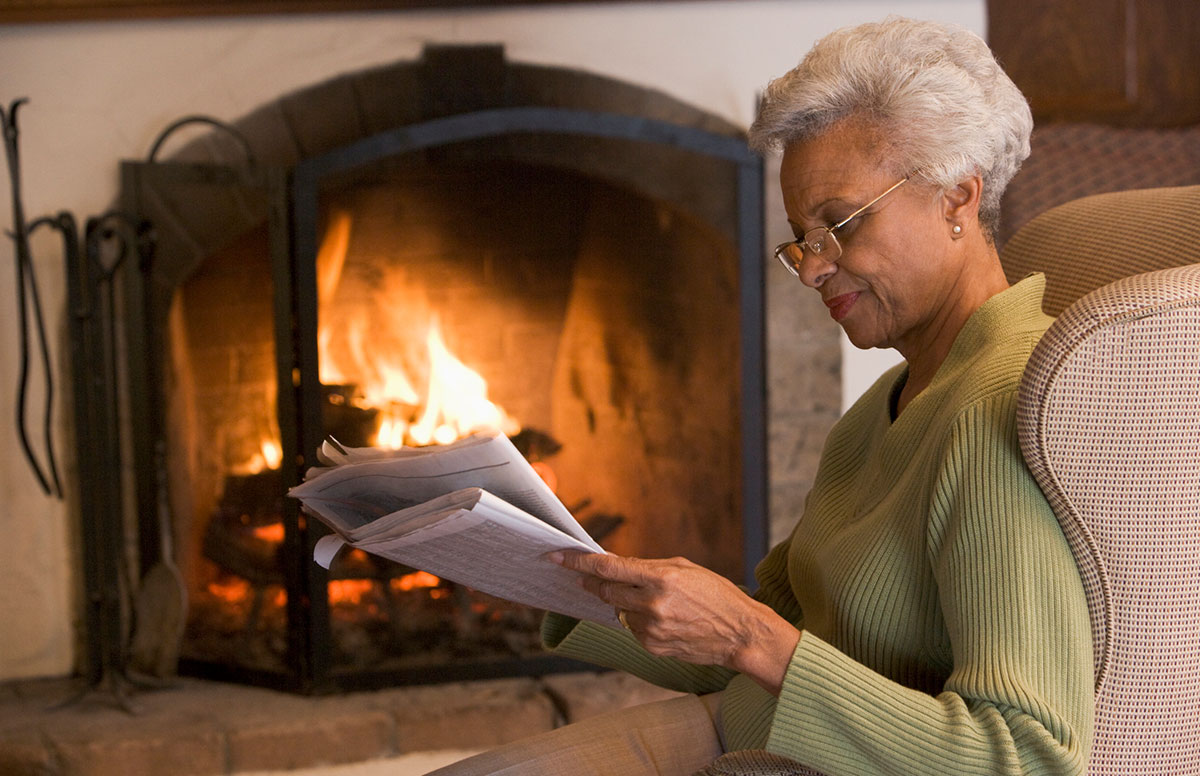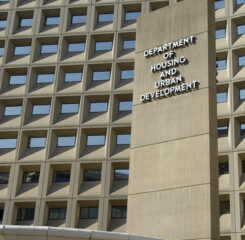LeadingAge Urges HUD to Improve Senior Housing Preservation
In response to a request for comment by HUD, LeadingAge urged the agency to improve key parts of the Rental Assistance Demonstration (RAD) for PRAC properties, an important affordable housing preservation tool. HUD recently initiated the process of expanding RAD access to Section 811 Supportive Housing for Persons with Disabilities; in the process, HUD is also making improvements to the rules for RAD for Section 202 PRAC properties serving older adults.
LeadingAge’s November 23rd comments to HUD state: “As HUD implements new RAD provisions for the 811 portfolio, we urge the agency to utilize this regulatory opportunity, and to make use of its waiver authority granted by the RAD statute, to make improvements to RAD for 202 PRACs with the goal of improving conversion feasibility and enhancing the condition of the country’s affordable housing stock over the long-term.”
Rental Assistance Demonstration
The Rental Assistance Demonstration serves an important preservation function within HUD’s portfolio: allowing properties operating under certain HUD programs with limited recapitalization options to convert to other HUD programs that provide access to better financial leveraging. This frees up properties that currently have limited options for rehabilitation and long-term recapitalization, like HUD’s Section 202 Supportive Housing for the Elderly, to convert to HUD’s Section 8 platform, under which properties can leverage public and private funding to make much-needed physical property improvements.
In addition to rehab work, RAD also provides an avenue for the country to keep units affordable longer, because converting properties agree to new affordability restrictions and use agreements. In other words, RAD is crucial for keeping the country’s affordable housing stock in quality condition for the long-term by providing an avenue for physical property rehabilitation and renewed affordability commitments.
Implementing RAD for 202 and 811 PRACs
After initially authorizing RAD only for Public Housing to convert to HUD’s Section 8 platform, Congress in the 2018 Omnibus authorized RAD for Section 202 PRAC properties to convert to Section 8. Section 202 PRACs serve older adults with low incomes and receiving ongoing operating subsidy from HUD, but are restricted in their access to recapitalization funding and financial leveraging. HUD implemented RAD for 202 PRACs through Revision 4 of the RAD Notice (Notice-H-2019-09/PIH 2019-23) in 2019.
PRAC properties operating within HUD Section 811 Supportive Housing for Persons with Disabilities are similarly restricted in accessing recapitalization financing, and in the FY 2022 Appropriations Act, Congress authorized RAD for Section 811 PRACs. HUD is now in the process of implementing this expanded authority, and is planning updates to the rules governing RAD for Section 202 PRACs, as well.
Improvements to RAD for PRACs
Since HUD’s implementation of RAD for 202 PRACs, several LeadingAge members have been able to navigate the RAD for PRAC conversion process despite critical challenges with the current RAD structure. In November 23rd comments to HUD, LeadingAge cautioned against continuing and replicating policies for converting 202 and 811 PRACs that create infeasibilities and ultimately limit the ability for deserving communities to participate in the preservation process.
LeadingAge recommended the following improvements to RAD for PRACs:
- Rent Adjustments for Continuing Marketability and Preservation: RAD-converted project-based Section 8 properties are locked intotheir initial contract and can adjust their rents only with Operating Cost Adjustment Factors (OCAFs). Most non-RAD Section 8 properties, by contrast, have access to a Rent Comparability Study (RCS) every 5 years, in addition to OCAFs, to help keep property budgets in step with market rents. Entering into a 20-year OCAF-only contract with no opportunities for market-driven budget adjustments or set intervals to bring rents to market levels is extremely risky for non-profits, and is deterring or barring properties in need of preservation from participating in RAD. LeadingAge is urging HUD to work with Congress to adjust this requirement, or to utilize waiver authorities to provide alternative processes for properties undergoing conversion.
- Initial Rent-Setting for Long-Term Feasibility: Because of the restricted access to contract rent adjustments for converted properties, improving initial rent-setting should be HUD’s primary goal to create more financial feasibility for converting properties and to avoid the conditions that necessitated RAD-accessed recapitalization to begin with. Currently, initial rent levels are mainly set through the regular PRAC budget-based approved process. The reliance on regular PRAC rents sets properties up to fail because of strong pushback from local HUD staff to increase PRAC budgets annually, originating in part from limited funds in the Section 202 account. In many cases, properties spend years inching property budgets upwards at less than 4% until they reach a rent level at which they can reasonably convert under RAD, keeping in mind that at the point of conversion they are locked into OCAF adjustments for 20 years. LeadingAge strongly urges HUD to utilize waiver authorities to shift instead to an initial rent-setting process that considers comparable market rents, rather than relying on approved PRAC budgets alone. For example, LeadingAge is urging HUD to set a minimum initial rent floor of 100% or 110% of Fair Market Rent (FMR).
- Feasibility Benchmarks for PRAC Conversions. HUD has established operating pro forma for properties converting under RAD, including limits on vacancy loss projects, bad debt calculations, and debt-coverage ratios. We urge HUD to reconsider or allow requests for exceptions to the current vacancy threshold and debt ratio trends. Many RAD-positioning properties find the projections out of step with actual ledgers that still reflect financially healthy properties. In addition, the use of a calculation that relies on historical averages requires exceptions due to the impact of the Public Health Emergency on occupancy rates across the portfolio.
- Capital Needs Assessment Time Limits. Owners spend a great deal of time reviewing their draft Project Capital Needs Assessments (PCNAs), given that this is their one chance to increase their annual Reserve for Replacement (R4R) deposit to support renovation work. It is very easy for the CNAs to expire, especially since HUD Recap has changed the expiry date from 12 months to 6 months. Owners are frequently incurring additional fees for desk updates and/or brand-new reports. LeadingAge therefore encourages HUD to change the recognized expiration date back to the 12-month limit.
- Reserve for Replacement Planning. Reserve deposit calculations are a crucial tool for owners to set up budgets that will support the property over 20 years, both for needed capital repairs and to create cashflow in the approved budget. HUD’s current lesser of 5- or 20-year Reserve for Replacement annual deposit formula does not adequately fund projects’ R4R accounts for the term of the new 20 year, OCAF-only HAP contract. It also forces properties to alter the projected timeline for capital projects in order to achieve a financially feasibly project and asset preservation. LeadingAge therefore recommends that the formula be changed to reflect the full 20 years or, better yet, the greater of 5 or 20 years.
- Rent Bundling between 811 and 202 Properties. Currently, the RAD Notice allows rent bundling between multiple simultaneously converting Section 202 properties. This allows rents to be adjusted and spread across separate properties; bundling has proven to be an effective tool to increase preservation feasibility for smaller properties or properties with diverse financial, asset, and population needs. Moving forward, LeadingAge recommends that HUD allow rent bundling for 811 PRACs, as well as between 811 and 202 PRACs.
- Process Improvements. RAD conversions require a strong partnership between housing professionals and HUD, as well as between HUD offices at all levels of the agency. LeadingAge encourages HUD to adjust its processes, both internally and externally, to achieve smooth implementation of several key components of conversion. This includes the process of rent-setting in PRACs, the implementation of the Supportive Services Fee, and future-facing analyses of capital needs at the property.
- Energy Efficiency. LeadingAge shares HUD’s renewed commitment to improving energy efficiency, climate resilience, and environmental justice, and we believe that recapitalization is the prime opportunity to elevate climate priorities throughout the portfolio. Currently, the RAD Notice steers converting properties toward energy efficiencies, but falls short of providing stronger incentives to achieving energy efficiency. LeadingAge is mindful of the potential cost impacts of environmental threshold requirements, and we encourage HUD to elevate incentives over requirements. For example, if HUD were to adjust the initial rent-setting process for converting PRACs to a market drive formula (minimum 100% of Fair Market Rent, or FMR), HUD could offer an additional incentive of a 110% floor for properties committing to certain energy efficiency measures. In addition, because of the financial constraints on converting properties, and we encourage the Office of Recapitalization to allow converting properties to incorporate forthcoming Green and Resilient Retrofit Program (GRRP) funding into the rehab capital stack for RAD-converting properties.
- Design for Independent Aging. LeadingAge agrees with HUD that “quality housing is a platform for health and wellness.” However, similar to the RAD Notice’s approach to energy efficiency, HUD’s current RAD rules for PRACs is to encourage, but not require, support, or financially incentivize, proven designs that optimize aging in community. We encourage HUD to consider implementing additional incentives to steer preserved properties toward elements that will allow older adults to age independently in housing that is affordable and accessible over the long-term.
LeadingAge will continue working with HUD to improve preservation options for affordable senior housing. Our full comments to HUD are available here.

Most Recommended
November 08, 2024
 HOTMA: New Rules for Housing
HOTMA: New Rules for Housing
November 06, 2024
 Colleagues on the Move, November 6, 2024
Colleagues on the Move, November 6, 2024
November 06, 2024
 Analysis: What Does the Final CY2025 Home Health Rule Include?
Analysis: What Does the Final CY2025 Home Health Rule Include?
October 29, 2024
Katie Smith Sloan Urges Members to Build a Movement, Take Action
Recently Added
December 13, 2024
CAST Members in the News
December 13, 2024
a2 Pilot Awards Open for AI-based Healthy Aging Projects
December 13, 2024
HUD Finalizes 30-Day Eviction Notification Rule
December 12, 2024



